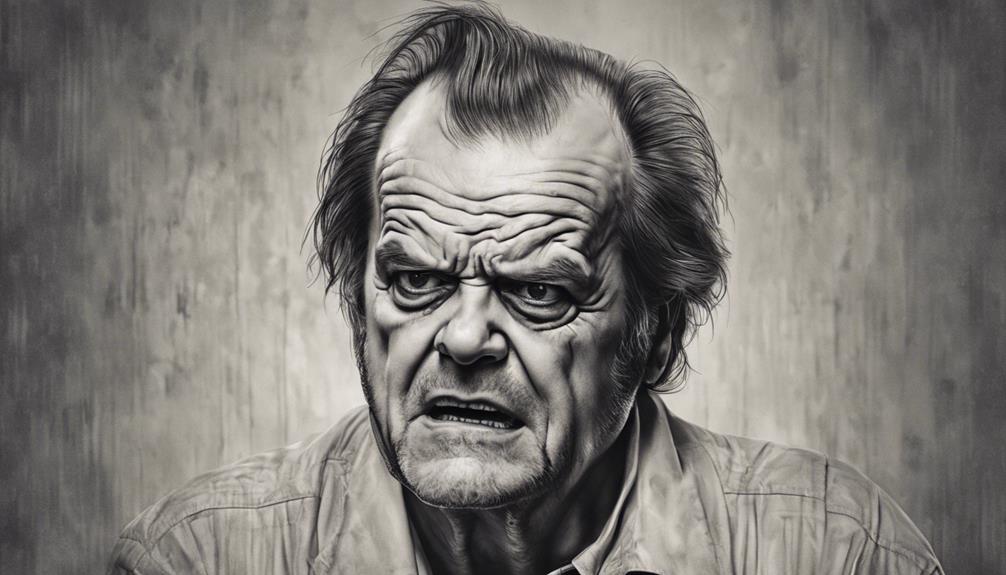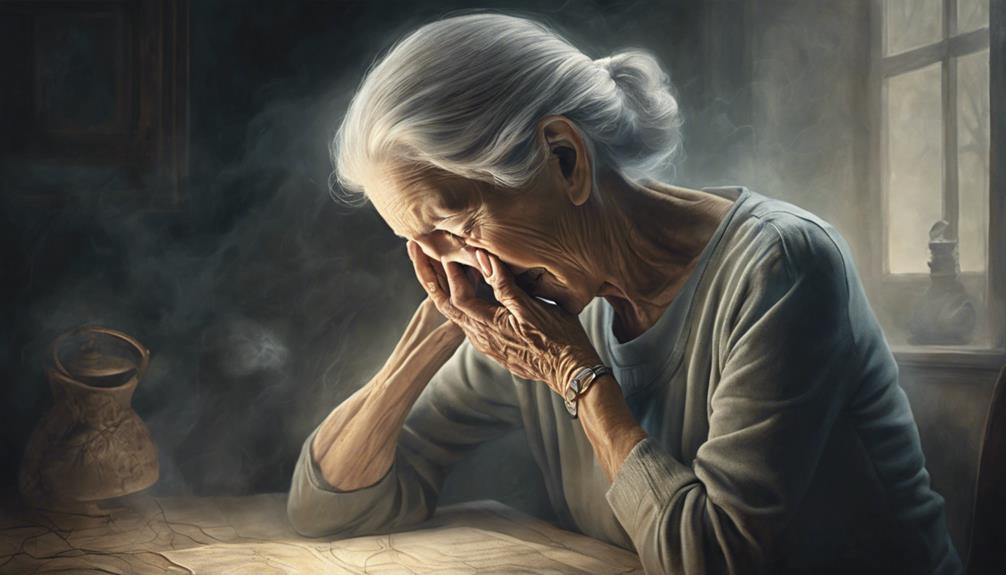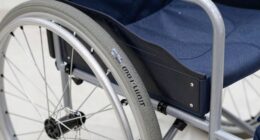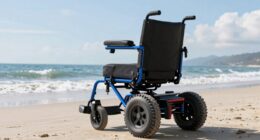There have been recent observations regarding Jack Nicholson’s public appearances, with many noticing a noticeable change in his attitude and behavior. This has raised concerns among both his fans and colleagues in the entertainment world. Given his successful career characterized by his quick wit and charm, the question looms as to whether these alterations could signify a more profound problem.
Could the legendary actor be facing a health challenge that goes beyond the natural aging process? The speculation surrounding his well-being raises intriguing questions about the intersection of fame, privacy, and health in the life of a Hollywood icon.
Key Takeaways
- Concerns about Jack Nicholson's health raised due to cognitive decline observations.
- Understanding dementia crucial due to speculated concerns about Jack Nicholson.
- Early diagnosis of dementia essential for effective management and support.
- Importance of comprehensive medical evaluation to address potential dementia in Jack Nicholson.
Jack Nicholson's Early Career
During Jack Nicholson's early career, he took on various small roles in films and TV shows, eventually gaining recognition for his performance in the 1969 film 'Easy Rider.' It was this role that helped propel Nicholson into the spotlight and showcase his acting abilities. Following the success of 'Easy Rider,' Nicholson continued to impress audiences and critics alike with his versatility and talent.
One of the pivotal moments in Nicholson's early career came with the 1970 film 'Five Easy Pieces,' where he delivered a standout performance that earned him critical acclaim. This film not only solidified Nicholson's reputation as a skilled actor but also laid the groundwork for his future success in Hollywood. His ability to portray a wide range of characters with depth and authenticity set him apart in the industry.
With each role he undertook during his early career, Nicholson inched closer to his iconic status in Hollywood. His dedication to his craft and undeniable talent helped him carve out a place for himself among the industry's elite.
Current Health Status of Nicholson
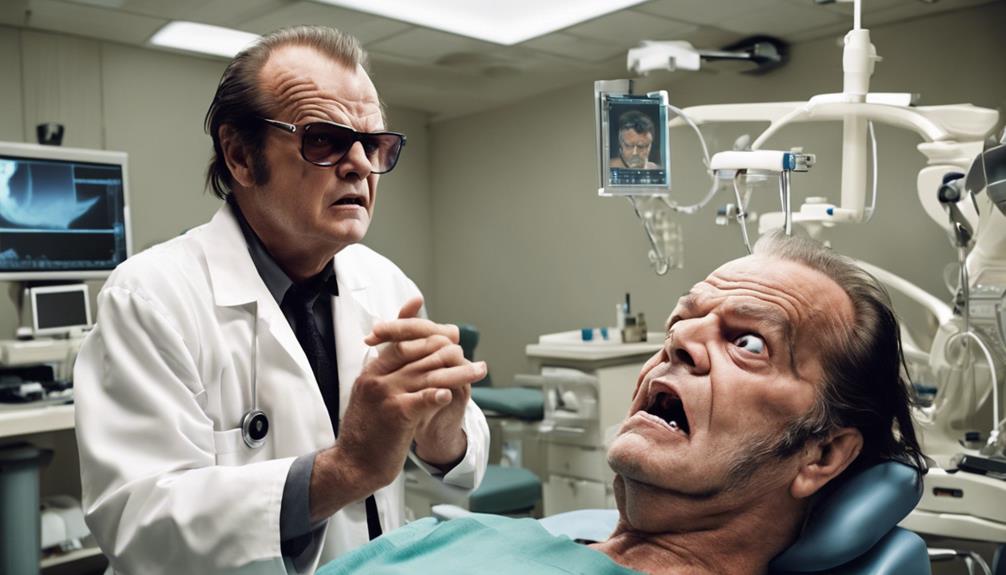
Amid growing concerns about his cognitive health, rumors surrounding Jack Nicholson's potential struggle with dementia have surfaced, particularly following his retirement from acting in 2010 due to memory loss. Nicholson's current health status has become a topic of interest due to the following observations:
- Reclusive Behavior: Nicholson has been increasingly reclusive, with limited public appearances and interactions, raising questions about his well-being.
- Friend Concerns: Friends of the actor have expressed worry about his slow decline and the lack of social engagements, indicating a potential deterioration in his cognitive abilities.
- Family Support: Family members, particularly his son and daughter, play a crucial role in Nicholson's life, serving as his primary connection to the outside world. Their involvement highlights the importance of familial support in managing health challenges such as dementia.
These factors combined paint a picture of a once vibrant Hollywood icon facing potential cognitive health issues, prompting concerns and speculation among those familiar with his work and life.
Understanding Dementia
Understanding dementia involves recognizing the general term for cognitive impairments that impact memory, thinking, and behavior, stemming from damage or degeneration of brain cells.
Dementia isn't a specific disease but a syndrome encompassing various conditions that lead to cognitive decline. Common manifestations of dementia include memory loss, confusion, communication difficulties, and changes in behavior.
Early diagnosis plays a critical role in managing symptoms and providing appropriate supportive care. While there's currently no cure for dementia, ongoing research aims to enhance detection methods and develop more effective treatments.
Individuals with dementia may benefit from interventions that focus on improving their quality of life and functional abilities. By understanding the complexities of dementia and its effects on individuals, caregivers and healthcare professionals can provide tailored support that addresses their unique needs and challenges.
Symptoms and Warning Signs

Moving from the broader understanding of dementia to specific symptoms and warning signs, social withdrawal and memory loss are commonly observed indicators that may suggest the presence of cognitive impairment. When considering the possibility of dementia in individuals like Jack Nicholson, it's essential to be mindful of the following key points:
- Communication Problems: Difficulties in expressing thoughts or following conversations can be early signs of cognitive decline.
- Visual Perception Issues: Changes in visual abilities, such as trouble reading or judging distances, could signal underlying dementia.
- Forgetfulness: Forgetting recent events, repeating questions, or relying heavily on memory aids may point towards a decline in cognitive function.
Caregivers and loved ones play a crucial role in recognizing these symptoms and warning signs in individuals like Jack Nicholson. Vigilance in monitoring changes in behavior and seeking professional evaluation can aid in early detection and appropriate management of dementia-related issues.
Medical Evaluation and Diagnosis
Upon assessing Jack Nicholson's cognitive health, a comprehensive medical evaluation and diagnosis are imperative to determine the presence and extent of any potential dementia-related issues. Given Nicholson's advanced age of 85 years and reported family history, the importance of early detection through thorough medical assessments cannot be overstated. A structured evaluation focusing on cognitive health, including memory, attention, reasoning, and communication, is essential in identifying any signs of cognitive decline. Biomarker research in Alzheimer's disease and dementia underscores the significance of proactive medical evaluations for individuals at risk, such as Jack Nicholson. To emphasize the critical nature of this process, we present a table illustrating the key aspects of medical evaluation and diagnosis in dementia assessment:
| Aspect | Importance |
|---|---|
| Cognitive Assessment | Evaluating memory, reasoning, attention, and perception abilities. |
| Medical History Review | Understanding past illnesses, medications, and family history. |
| Neurological Examination | Assessing reflexes, coordination, balance, and sensory functions. |
| Brain Imaging Studies | Utilizing MRI or CT scans to visualize brain structure and abnormalities. |
| Laboratory Tests | Conducting blood tests to identify potential underlying causes of symptoms. |
Frequently Asked Questions
What Disease Does Jack Nicholson Have?
We can confirm that Jack Nicholson's current health condition remains a subject of speculation. Reports suggest concerns about his well-being and mental state, with friends expressing worries about his decline, citing limited public appearances and social withdrawal.
While rumors suggest dementia due to his retirement from acting and memory loss, there's no official confirmation of any specific disease at this time. Nicholson's cognitive health continues to be a topic of interest and concern.
What's Happened to Jack Nicholson?
We've observed limited public appearances and reports of memory loss and social withdrawal concerning Jack Nicholson. Concerns about his health and well-being have escalated, with friends and close sources expressing worries about his cognitive decline.
Nicholson's retirement from acting in 2010, citing memory loss, adds weight to these concerns. The lack of recent sightings and reclusive behavior have intensified anxieties about his overall condition, prompting discussions about potential health issues.
Can You Slow Down Dementia if Caught Early?
If caught early, dementia progression can potentially be slowed down through lifestyle modifications, cognitive stimulation, and appropriate medical interventions. Regular physical activity, a balanced diet, mental exercises, and social engagement play crucial roles.
Early diagnosis allows for effective symptom management and care planning. Monitoring by healthcare professionals, along with support from caregivers, is vital. Timely interventions can help individuals with dementia maintain a better quality of life.
What Should I Do if I Have Early Dementia Symptoms?
If we notice early dementia symptoms, seeking a thorough evaluation from a healthcare professional is crucial. Engaging in cognitive activities, staying socially connected, and maintaining a healthy lifestyle are vital steps.
Early diagnosis aids in symptom management and future planning. Educating ourselves and loved ones about dementia helps us better understand and cope with the condition. Being proactive and seeking support can significantly impact our journey with dementia.
Conclusion
In conclusion, it's important to recognize the potential signs of dementia as we consider Jack Nicholson's health.
With his iconic career and memorable performances, it's crucial to understand the impact of cognitive decline on individuals, regardless of their fame.
As we navigate discussions about Nicholson's well-being, let's tread carefully, like walking on eggshells, and approach the topic with sensitivity and empathy.
